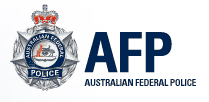AFP confirms 13 referrals to investigate leaks from Commonwealth officials in 18 months
 The Australian Federal Police (AFP) has today confirmed it has received 13 referrals in 18 months from government requesting officers investigate the leaking of confidential government information by whistleblowers and government sources.
The Australian Federal Police (AFP) has today confirmed it has received 13 referrals in 18 months from government requesting officers investigate the leaking of confidential government information by whistleblowers and government sources.
The revelation comes amid the ongoing debate over the retention of metadata and follows a “fact check” issued by the AFP condemning the journalists‘ union for a statement which quoted AFP commissioner Andrew Colvin confirming the federal police “had been repeatedly asked to hunt down journalists”.
Australian Federal Police described the media release by the Media Entertainment and Arts Alliance (MEAA) as “inaccurate and a distortion of the comments made” before going on to confirm the “AFP has received 13 referrals relating to the alleged unauthorised disclosure of Commonwealth information in breach of section 70 of the Crimes Act”.
The AFP media release goes on to note that it is an offence for government officials to release Commonwealth information in contravention of their obligations to journalists and the media.

